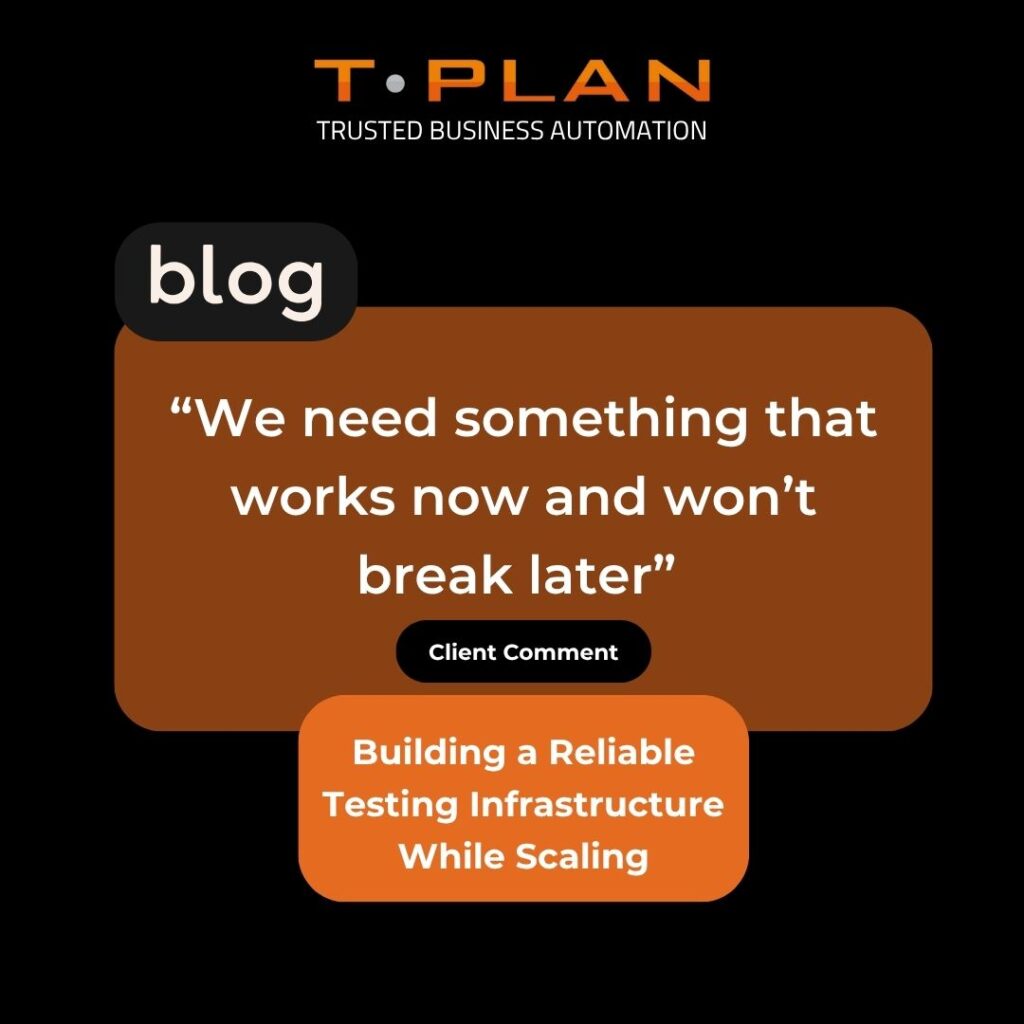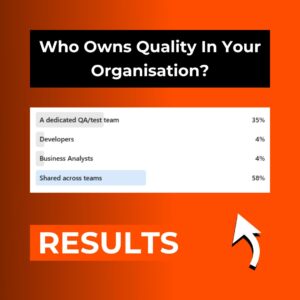For many scaling tech organisations, speed is essential. Features are released rapidly, teams expand, and simple stacks quickly become complex ecosystems. But one area often left behind during this growth is test automation.
If you have ever said:
“We need something that works now and still works a year from now”
You’re not alone. We hear it often from teams that began with open-source tools like Selenium or Appium, only to discover their limitations when scaling up.
The Limits of Open Source
Open-source frameworks offer flexibility and zero licence fees, which make them an attractive choice for startups and technically mature teams. However, they also come with serious trade-offs.
As your infrastructure grows, so do your dependencies. Suddenly you are dealing with broken scripts, unsupported libraries, security gaps, and complex plugin chains. Instead of focusing on new features, your team is spending time maintaining fragile test frameworks.
At scale, these costs multiply. What starts as a time-saver can become a bottleneck.
What Long-Term Test Automation Really Requires
A future-proof test automation strategy is not about choosing the most popular tool. It is about selecting an approach that aligns with your business goals, your infrastructure and your pace of change.
Key considerations include:
- Platform independence: Your tool should support everything you test, not just web browsers. That includes mobile, desktop and legacy systems.
- Stability through change: Your stack will evolve. Your test coverage should not break every time it does.
- Security and compliance: Particularly in regulated industries, automation must be auditable, controlled and protected.
- Team-wide usability: The wider your testing responsibilities are shared, the more resilient your delivery becomes.
The Hidden Costs of Open Source at Scale
While free to use, open-source frameworks often introduce costs that are easy to overlook. These include:
- Specialist hiring to manage complex scripts and integrations
- Time lost to updates, version conflicts and broken dependencies
- Inadequate support for non-web or older systems
- Additional tools required for visual testing and reporting
- Infrastructure and hosting costs for parallel test execution
At a certain point, the question becomes less about licence costs and more about value and reliability.
Thinking Beyond the Next Release
Test automation is more than a QA function. It protects the quality of your product, reduces delivery risk and increases confidence across your team. In a scaling business, this is not a luxury. It is essential.
The right solution is one that gives you consistent results, regardless of how your tech stack changes or how your team grows.
An Alternative Built for Scale
When the time comes to move beyond open-source limitations, T-Plan offers a platform designed for long-term success:
- Technology-agnostic: Supports mobile, desktop, web and legacy systems in one tool
- Image-based automation: Validates UI like a human would, across any application
- Secure and on-premise: Ideal for regulated, data-sensitive environments
- Low-code and accessible: Reduces dependency on specialist roles
- Scalable licensing: Designed to grow with your team
With T-Plan, you get a solution that adapts to your future rather than being constrained by your past.
Final Thoughts
As you scale, your automation strategy must evolve with you. The best time to future-proof is now, before technical debt becomes a blocker to progress.
Ready to explore long-term automation without the usual risks?
Speak to the team here or contact us at sales@t-plan.com.



